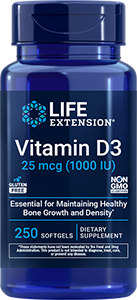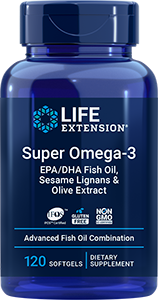
Newsletter
Newsletter
Human studies suggest resveratrol may help improve cardiometabolic risk factors

July 14, 2020
Recently published articles add evidence to an association between supplementation with resveratrol, a polyphenol found in grapes and other plant foods, and improvement in aspects of metabolic syndrome: a group of factors that increase the risk of cardiovascular disease and diabetes.
A study published in Life Sciences on June 10, 2020 examined the effects of resveratrol and physical training on anthropometric (body weight, body mass index and waist circumference) and biochemical factors in obese men and women. Twenty-two subjects were assigned to participate in a physical activity program and provided with an individualized low-calorie diet plan supplemented with 250 milligrams resveratrol or a placebo daily for three months. Anthropometric parameters and blood test values were measured at the beginning and end of the study.
Total cholesterol, very-low density lipoprotein (VLDL) cholesterol, urea, creatinine, albumin and leptin levels significantly declined and beneficial high-density lipoprotein (HDL) cholesterol levels increased among participants who received resveratrol in comparison with pre-treatment levels. “These findings indicate that this polyphenol may be an option to potentiate the beneficial effects induced by dietary and physical activity programs in the metabolic syndrome (MetS) treatment,” authors G. C. Batista-Jorge and colleagues wrote.
Another article, published on May 30, 2020, in the Archives of Medical Science Atherosclerotic Diseases, concluded that supplementation with resveratrol was associated with improvement of cardiometabolic health as indicated by a decline in specific risk factors. The article reports the findings of a meta-analysis of 17 randomized, controlled trials that examined the effects of resveratrol on cardiometabolic risk factors among metabolic syndrome patients with or without coronary artery disease, or healthy subjects with or without obesity. The trials ranged from 14 to 365 days and included a total of 651 participants. Supplements used in the trials included modified resveratrol, grape extract resveratrol or an extract of Polygonum cuspidatum that contained resveratrol, in doses ranging from 10 milligrams to 2000 milligrams per day.
Overall, supplementation with resveratrol was associated with a reduction in insulin resistance (HOMA-IR), which increases the risk of progression to diabetes. When the trials that examined resveratrol’s effects in metabolic syndrome patients were evaluated, resveratrol supplementation was associated with lower glucose, total cholesterol (T-Chol) and low-density lipoprotein cholesterol (LCL-C). In the obese/healthy group, resveratrol was associated with a decline in systolic blood pressure.
The authors remark that resveratrol may help protect against cardiovascular disease by downregulating proinflammatory cytokines, inhibiting LDL oxidation, improving insulin sensitivity, reducing arterial blood pressure, inhibiting platelet aggregation, improving endothelial function and other factors.
“The association of glucose intolerance with insulin resistance, hypertension, dyslipidaemia and central obesity predisposing individuals to the development of type 2 diabetes mellitus and cardiovascular disease has been described as ‘metabolic syndrome’ (MetS),” Consolato Sergi and colleagues wrote. “More than a third of American adults with body mass index (BMI) higher of 30 kg/m2 may have a higher risk of developing conditions like type 2 diabetes mellitus, cardiovascular disease, and stroke than the general population.”
“We consider that resveratrol supplementation may improve cardiometabolic health, decreasing some risk factors (HOMA-IR, LDL-C, and T-Chol) associated with cardiovascular disease in some patients, and it should be part of personalized medicine,” they concluded.
Products
Apply What You've Learned: Resveratrol
- Because it has been associated with improvements in gene expression and health that are similar to those associated with calorie restriction, resveratrol is among several compounds known as calorie restriction mimetics.1
- The administration of resveratrol has extended the lifespan of yeast, worms, flies, honeybees, fish and certain strains of mice.2-5
- Resveratrol occurs in red grapes, red wine, peanuts, berries and the herb Polygonum cuspidatum (Japanese knotweed).6 However, one would need to consume unrealistic amounts of these foods to obtain a significant amount of resveratrol.
- In addition to resveratrol, D-glucosamine and the diabetes medication metformin are among some of the better-known calorie restriction mimetics.7
References
- Son DH et al. Korean J Fam Med. 2019 Sep;40(5):289-296.
- Bhullar KS et al. Biochim Biophys Acta. 2015 Jun;1852(6):1209-18.
- Rascón B et al. Aging (Albany NY). 2012 Jul;4(7):499-508.
- Liu T et al. Rejuvenation Res. 2015 Jun;18(3):225-33.
- Porquet D et al. Age (Dordr). 2013 Oct;35(5):1851-65.
- Sergi C et al. Arch Med Sci Atheroscler Dis.2020 May 30;5:e98-e111.
- Shintani H et al. Nutrients. 2018 Nov 22;10(12):1821.
Featured Life Extension Magazine® Article
Anti-Aging Effects of Lithium, by Sarah Lewis
Most people recognize lithium as a drug that has been used for decades as treatment for bipolar disorder. Yet lithium is a trace element found in soil, rocks and water throughout the earth. It has been found that people who live in areas with higher tap water levels of lithium live longer on average compared to residents of areas in which the water supplies less lithium.
Recent research has unveiled a number of health benefits in association with the intake of lithium. It may aid in the maintenance of longer telomeres, regulate genes associated with healthy DNA, protect against cellular senescence, help prevent cognitive decline and more. For these and other reasons, lithium has become available as a supplement in doses far lower than those contained in prescription drugs.
Sleep Health Supplement Guide
By answering a few simple questions, we will help you choose the best sleep health supplements that are right for you.
What's Hot
Health Concern
Resveratrol improves blood glucose, hemoglobin A1c in type 1 diabetics
Findings from a preliminary trial reported on January 6, 2020 in Nutrients revealed benefits associated with resveratrol supplementation in participants with type 1 diabetes.
Diabetes and Glucose Control
Diabetes mellitus is characterized by high levels of glucose in the blood. Type 2 diabetes is far more common than type 1 diabetes and is mainly caused by resistance to the effects of the hormone insulin, which facilitates removal of glucose from the blood. Type 1 diabetes is primarily caused by destruction of insulin-producing pancreatic beta cells.









